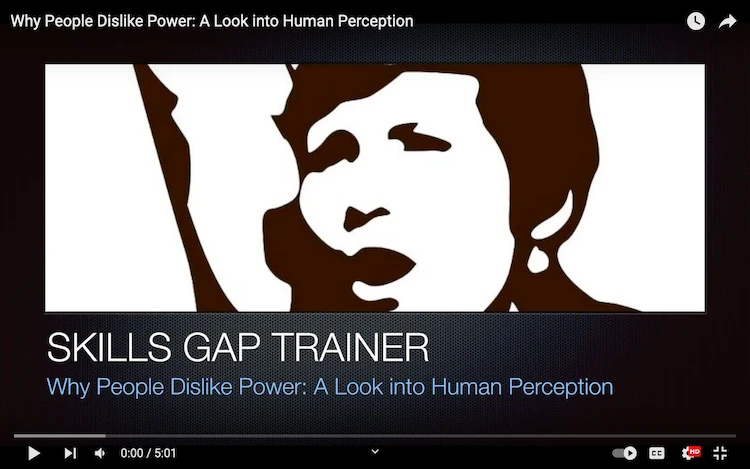Power is a complex concept that provokes a range of reactions. Many people regard it with wariness or outright disdain, linking it to historical misuses that have resulted in injustice and inequality. Despite these negative connotations, power is also tied closely to freedom and agency. It is a key factor that drives the ability to influence, change, and shape environments, which is especially relevant in the context of organizational management. However, its misuse can lead to organizational conflict, unethical behaviours, and even adverse effects on the overall health of an organization. Therefore, a balanced perspective of power, especially among managers, is vital in today’s organizational landscape.
Understanding power in its raw form is crucial. It’s about freedom, the ability to enact desired actions, and exert one’s will. In the corporate world, power typically manifests as managerial authority, which gives leaders the capacity to delegate tasks, make decisions, and influence their team’s direction. Yet, wielding power is not a simple matter. It demands a nuanced understanding of its potential effects, both positive and negative, on the individuals under one’s charge and the organization as a whole.
When a person attains power, it can spark significant personality changes. Some individuals may develop unfavourable traits such as narcissism, while others may cultivate positive ones such as charisma. However, an unchecked accumulation of power can sever a leader’s connection with their more humble, powerless selves, leading to a disconnection from their team and a potential breakdown in team harmony and productivity.
Research suggests that structured interviews, based on competency frameworks, can help organizations mitigate the risk of appointing leaders prone to misuse their power. Interviewers trained in identifying key soft skills, such as emotional intelligence, humility, and empathy, alongside traditional leadership qualities, are better equipped to identify potential leaders who can wield power effectively and ethically. Training programs focusing on these areas, supported by AI and other modern tools, are increasingly important in the development of tomorrow’s leaders.
However, the mere appointment of a potentially good leader does not ensure the balanced use of power. Organizations need to create systems that promote transparency, limit unilateral decision-making, and encourage leaders to continuously improve their soft and technical skills. This approach helps prevent power misuse and promotes a culture of ongoing learning and development.
A primary challenge here is the potential skills gap in leadership roles. Addressing this gap requires a dual approach: continuous skills analysis and strategic skills development. By understanding the current competency levels within their teams, managers can better target training initiatives to address deficiencies. Modern training platforms and methodologies can play a crucial role in this endeavor, especially in the realm of soft skills that are often overlooked yet are critical for effective leadership.
Managers should also be adept at conflict management, as conflict often arises in power dynamics. By developing skills to navigate high-stakes negotiations and manage opposing interests, leaders can promote harmony, even in challenging situations. Further, recognizing and addressing biases—such as the tendency to favor candidates who are similar to the interviewer—can ensure a more equitable distribution of power within a team.
Power is not inherently negative or positive—it is a tool. As with any tool, its effect depends on the user. Therefore, leaders should strive to wield their power in ways that promote fairness, justice, and productivity. Achieving a balanced view of power in management is critical to driving organizational success and nurturing positive work environments.
In conclusion, power is a critical aspect of effective management. It demands respect, careful handling, and continuous learning to be used effectively. Through a combination of effective interviewing techniques, ongoing skills development, and a commitment to addressing biases and managing conflict, leaders can ensure they wield their power in ways that benefit their teams and their organizations.
Related books and resources:
“Power: Why Some People Have It—and Others Don’t” by Jeffrey Pfeffer – This book provides an insightful exploration into the dynamics of power in organizations, discussing how it can be acquired, used, and maintained effectively.
“Leadership BS: Fixing Workplaces and Careers One Truth at a Time” by Jeffrey Pfeffer – This work challenges conventional wisdom about leadership and suggests practical approaches to develop authentic, responsible, and effective leaders.
“Influence: The Psychology of Persuasion” by Robert B. Cialdini – Cialdini’s classic book on persuasion elucidates the principles of influencing others, which is intrinsically linked to the exercise of power in both personal and organizational contexts.
“The 48 Laws of Power” by Robert Greene – While controversial, this book delves into historical strategies of power dynamics and control, providing a comprehensive look at how power has been used throughout history.
“Emotional Intelligence: Why It Can Matter More Than IQ” by Daniel Goleman – This book introduces the concept of emotional intelligence and its critical importance in effective leadership, particularly in managing power responsibly.
“Leading with Kindness: How Good People Consistently Get Superior Results” by William F. Baker and Michael O’Malley – This book argues for kindness as a powerful tool in leadership, showing how it can lead to success and a positive work environment.
“Good to Great: Why Some Companies Make the Leap and Others Don’t” by Jim Collins – Collins’ research into successful companies provides insights into how effective leadership and the right use of power can transform an organization.
“The No Asshole Rule: Building a Civilized Workplace and Surviving One That Isn’t” by Robert I. Sutton – This book looks at negative workplace dynamics, including the misuse of power, and offers advice for creating a more positive environment.
“Quiet: The Power of Introverts in a World That Can’t Stop Talking” by Susan Cain – Cain’s book offers insights into the strengths of introverted leaders and how they can wield power in effective, yet often overlooked, ways.
To see our Donate Page, click https://skillsgaptrainer.com/donate
To see our Instagram Channel, click https://www.instagram.com/skillsgaptrainer/
To see some of our Udemy Courses, click SGT Udemy Page
To see our YouTube Channel, click https://www.youtube.com/@skillsgaptrainer
